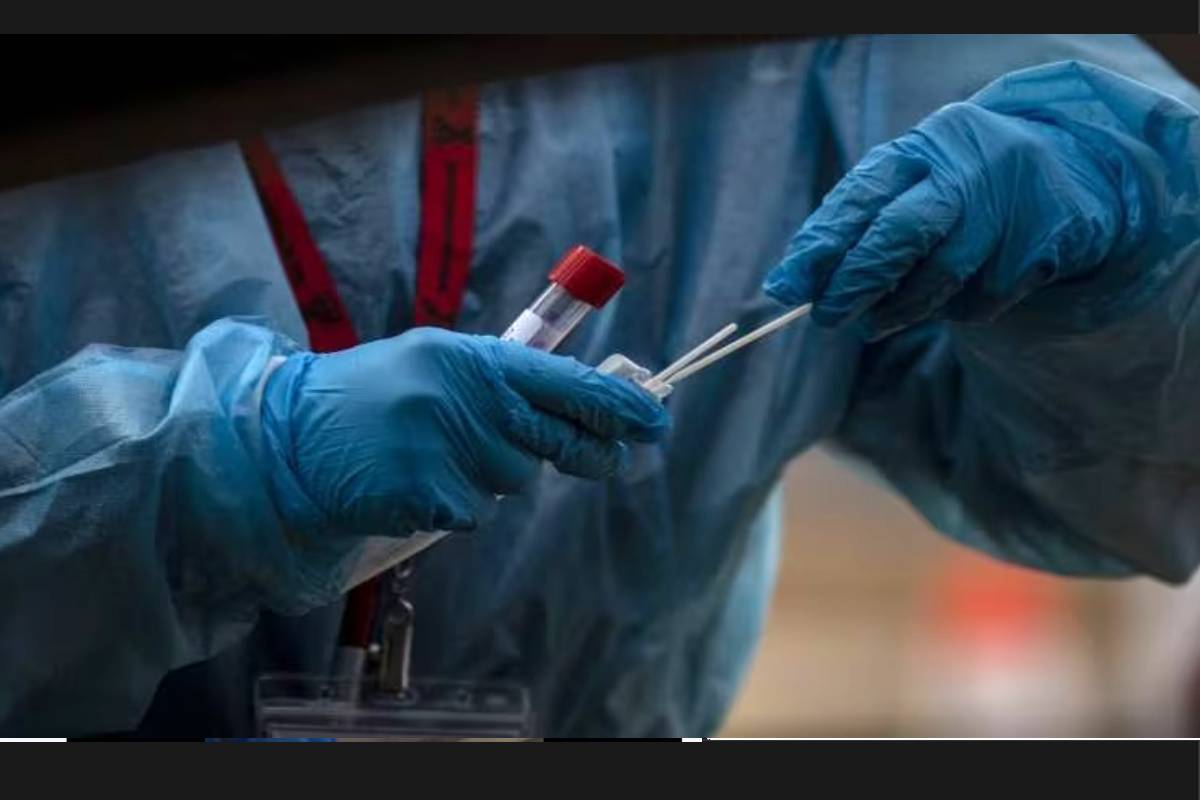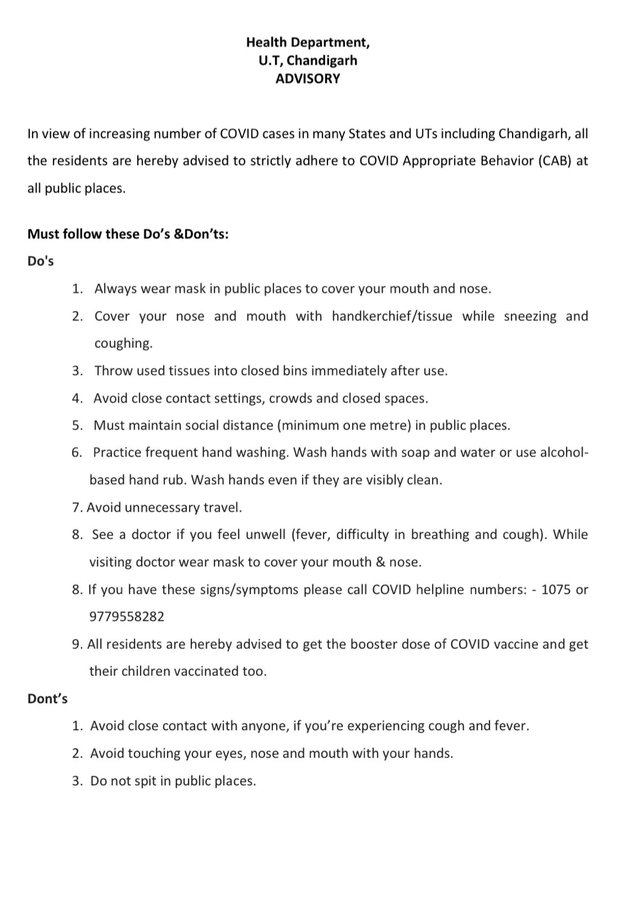NEW DELHI: In response to a surge in COVID-19 cases, particularly the rapid spread of the JN.1 sub-variant in states like Goa and Kerala, the Chandigarh administration has issued guidelines to curb the rising infection rates.
With India reporting 21 new cases of the JN.1 sub-variant, Chandigarh officials have mandated the wearing of masks in crowded and closed settings. This applies not only to the general public but is also mandatory for healthcare workers, including doctors, paramedics, patients, and their attendants in healthcare facilities.
Additionally, individuals testing positive for COVID-19 are instructed to self-isolate for seven days.
On Tuesday, India witnessed a spike in COVID-19 cases, reaching 614 new cases, the highest daily count since May 21. The surge has led to an increase in the number of patients under treatment, totalling 2,311. Notably, BJP councillor Amit Tyagi in Ghaziabad was reported as COVID-19 positive.
Delhi Health Minister Saurabh Bhardwaj assured the public that the national capital is prepared to handle the new COVID-19 variant, characterized by mild symptoms. While Delhi is on high alert, the government is actively reviewing the availability of crucial resources such as oxygen cylinders and ventilators.
FLASH: Chandigarh administration responds to the surge in #COVID19 cases by making masks mandatory. New guidelines issued as a precautionary measure.
India currently records 21 new cases of the COVID-19 sub-variant #JN1Variant pic.twitter.com/aINwtHhJe5— The New Indian (@TheNewIndian_in) December 21, 2023
In response to the evolving situation, the Chandigarh administration has taken significant steps to reinstate the use of masks, issue guidelines for avoiding crowded areas, and emphasize the importance of immediate medical consultation for symptoms like fever, cold, and difficulty breathing.
Kerala reported three deaths in the last 24 hours, bringing the total fatalities to 5,33,321. The national COVID-19 statistics show a total of 4.50 crores cases, with 4,44,70,346 recoveries and a recovery rate of 98.81%. The vaccination campaign has administered 220.67 crores doses across the country. As the situation evolves, authorities continue to closely monitor and adapt measures to safeguard public health.











